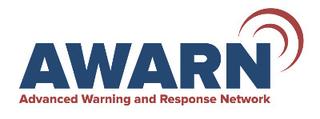AWARN Alliance Blasts T-Mobile White Paper Assertion
ARLINGTON, VA.—A T-Mobile white paper characterizing ATSC 3.0 and its advanced emergency warning capabilities as “inferior” drew fire Sept. 14 from the Advanced Warning and Response Network (AWARN) Alliance.

The wireless carrier’s document, submitted Sept. 11 as an ex parte communications to the FCC “denigrates the potential for ATSC 3.0 in advanced alerting,” said the AWARN response filed with the agency.
“ATSC 3.0 will not enhance public safety and emergency message delivery but instead would be an inferior platform compared to the well-established wireless network,” the T-Mobile white paper said.
The wireless company made the assertion as part of the case it was making against an FCC mandate to include ATSC 3.0 receivers and antennas in cell phones and other wireless devices.
In its response, the AWARN Alliance called the T-Mobile filing “irrelevant” because it “repeatedly and expressly [has] made clear that it does not seek a [ATSC 3.0] tuner mandate in fixed or mobile devices.”
While T-Mobile claims the superiority of its wireless network to convey emergency communications, its own FCC filing in another matter says otherwise, the response said.
In January, the wireless company and other industry players “made clear the limitations” of their networks with respect to improving Wireless Emergency Alerts (WEA) in a filing related to the FCC’s Alerting Paradigm Notice of Proposed Rule Making, the response said.
Get the TV Tech Newsletter
The professional video industry's #1 source for news, trends and product and tech information. Sign up below.
Penned by AWARN Alliance Executive Director John Lawson, the AWARN letter recited the table of contents in the January T-Mobile filing—with items such as “the issue of geo-targeting requires further study” and “WEA is not an appropriate means for transmitting earthquake early warning alerts”—which it said illustrated company’s “position on needed improvements to wireless alerting.”
“The reality is that ATSC 3.0 provides the building blocks to make the improvements to public alerting that T-Mobile says are not possible, realistic, or needed on its network,” Lawson said in the letter.
The response laid out the advantages AWARN as part of ATSC 3.0 brings to conveying emergency information to the public, including delivery of geo-targeted rich-media alerts to fixed, mobile and handheld devices.
It also used data from the FCC’s own Disaster Information Reporting System to compare the resiliency of broadcast and cell phone networks in the wake of Hurricane Irma.
Commission data revealed on Sept. 11 that 27.4 percent of cell towers in Florida were reported out of service. In hard-hit counties, 50 percent or more were out. “In Monroe County, which included the Florida Keys and falls inside the Miami-Ft. Lauderdale designated market area (DMA), over 80 percent of cell towers were reported out of service,” the AWARN response said.
However, for Sept. 11 and 12 the FCC data showed “just four (4) television stations in the whole of Florida were reported out of service,” the response said.
“In summary, T-Mobile is offering the Commission the worst of both worlds,” the response said. “Not only is it opposing improvements to WEA’s established by the Commission, it also disparages the advantages of ATSC 3.0 advanced alerting before it is even launched,” the alliance response said.
Phil Kurz is a contributing editor to TV Tech. He has written about TV and video technology for more than 30 years and served as editor of three leading industry magazines. He earned a Bachelor of Journalism and a Master’s Degree in Journalism from the University of Missouri-Columbia School of Journalism.

